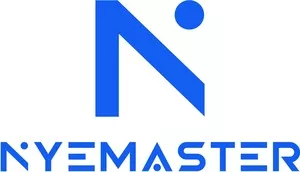- within Cannabis & Hemp topic(s)
- with readers working within the Banking & Credit, Basic Industries and Insurance industries
Startups are built around bold ideas, tight timelines, and limited budgets. That makes it easy for founders to overlook key legal details. Early legal missteps can have severe and lasting consequences for these entrepreneurs, spanning from disputes over ownership to missed investment opportunities.
The first article in Legal Basics for Startups: A Practical Series for Founders offers a startup checklist to avoid five of the most common legal pitfalls based on real-world startup patterns and foundational legal principles. Future installments will explore each topic in greater depth.
Choose the Right Entity Structure
Many founders default to a limited liability company (LLC) or S-Corporation when forming a new business. The decision is often based on simplicity, lower fees, or tax flexibility. For startups planning to raise capital from institutional investors, these structures can become obstacles.
Most venture capital firms prefer investing in Delaware corporations. Delaware offers:
- Well-developed corporate law
- Predictable governance rules
- Efficient filing processes
A startup that begins as an LLC may need to convert to a C-Corporation before closing a funding round. This can introduce administrative steps and timing considerations that are best addressed in advance.
Still, a Delaware C-Corporation is not the right starting point for every company. For many early-stage founders, forming an LLC or a corporation may offer simpler tax treatment, fewer formalities, and lower costs. These structural and tax differences should be considered early.
The good news: If institutional fundraising becomes a reality, with the right preparation, converting later can be a straightforward and affordable process.
Assign All Intellectual Property to the Company
At the earliest stages of a startup, intellectual property is often created quickly and informally. Founders might develop a product before forming the company. Contractors may contribute without a written agreement. The business may launch a brand without securing basic trademark protections.
IP ownership does not automatically vest in the company because someone was working for the company. For employees, the default assumption is that IP created within the scope of employment belongs to the employer, but only if there is a clear employment relationship. With independent contractors, the opposite is true.
Startups should ensure that all founders, employees, and contractors sign invention assignment agreements and nondisclosure agreements. These documents must assign all relevant IP to the company and confirm confidentiality obligations from day one.
When appropriate, founders should consider securing formal protections, such as trademark registrations or patent filings. A thoughtful IP strategy:
- Safeguards ownership
- Reduces risk in due diligence
- Increases investor confidence
Set Up Founders' Agreements and Vesting: Avoid Dead Equity
Many early-stage companies are formed between friends, classmates, or colleagues. They may split equity informally without documenting expectations, roles, or vesting schedules. This can lead to one of the most avoidable structural problems in startup life: dead equity.
Dead equity is ownership held by someone who is no longer contributing to the company but still keeps their full share. Founders should adopt a vesting schedule ensuring that founders earn equity over time. This strategy aligns ownership with long-term commitment and venture capital investors' expectations.
In addition to vesting, founders should adopt a founders' agreement that defines:
- Roles
- Decision-making
- Equity ownership
- IP assignment
- Dispute resolution
Founders' agreements help set expectations early and give the company tools to recover equity if needed. They should include provisions for equity repurchase or clawback in circumstances, such as misconduct or failure to meet obligations. Having mechanisms to clean up the capitalization table without litigation signals maturity and increases investor confidence.
Classify Workers Correctly
Startups often rely on lean teams, flexible roles, and short-term help. Misclassifying workers can create serious legal and financial risk. One of the most common errors is treating someone as an independent contractor when they should be classified as an employee.
Startups should carefully evaluate every working relationship and use written agreements, whether for employees or contractors, that address key terms such as:
- Scope of work
- Compensation
- Confidentiality
- IP assignment
For employees, companies must also comply with wage laws and employment classification rules. If the worker creates IP, a written provision should assign it to the company.
Early-stage business teams may be informal, but their legal obligations are not. A slight mistake involving wages or IP can ripple into a major liability as the company scales or approaches due diligence for funding.
Understand Fundraising Instruments and Dilution Risk
Founders often turn to convertible notes or Simple Agreements for Future Equity (SAFEs) to raise early capital quickly. These instruments are attractive because they defer valuation and allow startups to avoid pricing the company too early. While efficient, they can lead to unexpected dilution and control issues if misunderstood or misused.
SAFEs and notes convert into equity at a future financing round, often at a discount or with a valuation cap. Founders frequently underestimate how much dilution these terms can cause, especially when several instruments convert at once. For example, if multiple SAFEs convert at steep discounts, the founders' ownership can drop sharply. If early investors hold multiple instruments or negotiate pro rata rights, it can be difficult to preserve ownership or bring in new investors without extensive dilution.
Another common issue is failing to document early investments properly. Pre-seed funding from friends or family—if not clearly memorialized—can complicate equity ownership and create disputes down the line. Even at the earliest stages, founders should use standardized terms and maintain clear records.
Get Competent Startup Legal Advice
Startups do not fail because they ignore the law; they fail because they delay it. Startup legal issues are not technical problems; they are growth blockers. Getting them right from the beginning can save time, money, and heartache later.
The content of this article is intended to provide a general guide to the subject matter. Specialist advice should be sought about your specific circumstances.


